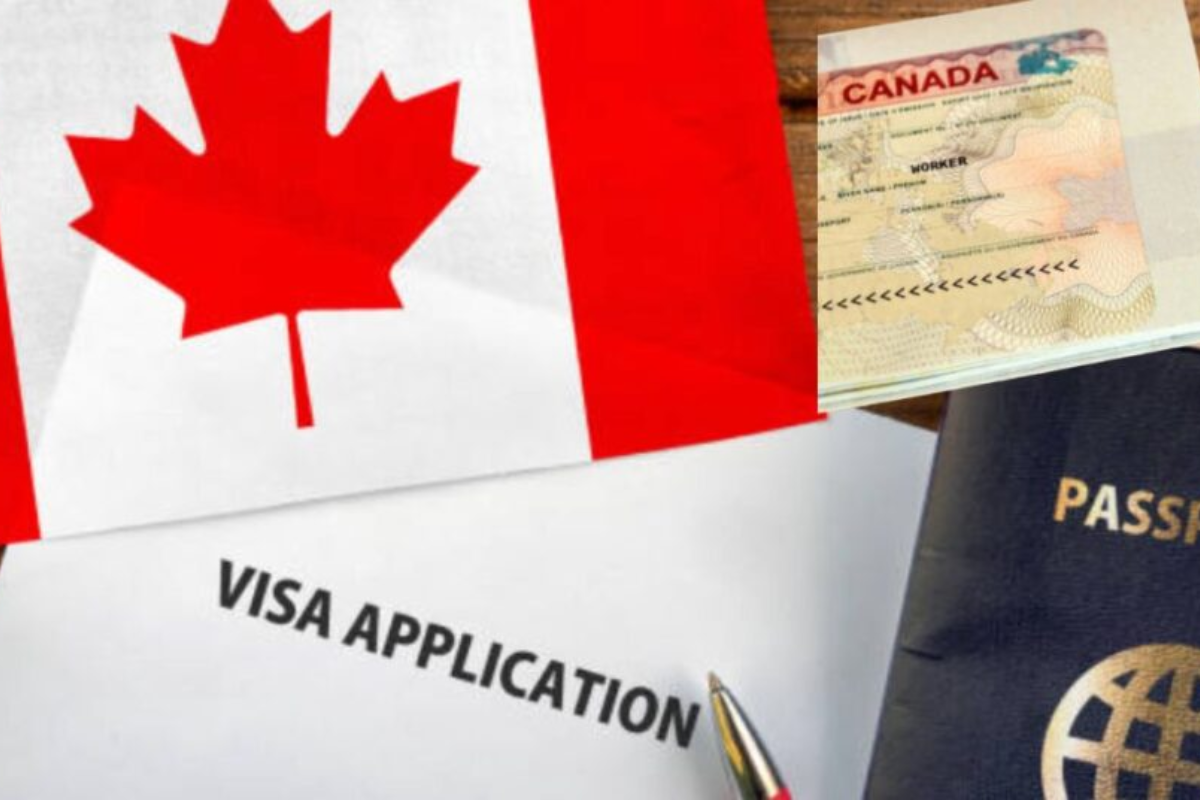Canada has introduced major updates to its Work Permit rules in 2025, allowing individuals to work in the country without needing an employer’s sponsorship. These new pathways, including Open Work Permits (OWPs), Self-Employed Visas, and Provincial Nominee Programs (PNPs), provide more flexibility for skilled professionals, freelancers, and entrepreneurs. If you’ve been dreaming of working in Canada but don’t have a job offer, this guide covers all the latest updates, eligibility criteria, and step-by-step application processes to help you secure a work visa successfully.
Canada has introduced major updates to its Work Permit rules in 2025, allowing individuals to work in the country without needing an employer’s sponsorship. These new pathways, including Open Work Permits (OWPs), Self-Employed Visas, and Provincial Nominee Programs (PNPs), provide more flexibility for skilled professionals, freelancers, and entrepreneurs. If you’ve been dreaming of working in Canada but don’t have a job offer, this guide covers all the latest updates, eligibility criteria, and step-by-step application processes tohelp you secure a work visa successfully.
What’s New in Canada’s Work Permit Rules for 2025?
The Immigration, Refugees and Citizenship Canada (IRCC) has updated work permit policies, bringing stricter regulations for some applicants while expanding opportunities for others.
Key Updates in 2025:
- Spousal Work Permit Restrictions: Only spouses of international students in Master’s, Doctoral, or professional degree programs are eligible for OWPs. Spouses of undergraduate and diploma students no longer qualify.
- Spouses of Temporary Foreign Workers (TFWs): Eligible only if their spouse works in a high-demand occupation (TEER 0, 1, 2, 3 categories) and has at least 16 months remaining on their permit.
- Dependent Children: No longer eligible for an Open Work Permit.
- Extended Work Permit Opportunities in Select Provinces: Alberta, Manitoba, and Yukon now allow foreign workers with provincial support letters to obtain OWPs for up to two years.
Pathways to Work in Canada Without an Employer Sponsorship
If you don’t have an employer-sponsored LMIA-based work permit, here are four alternative pathways to work in Canada legally:
1. Open Work Permit (OWP) – Ultimate Flexibility
A Canada Open Work Permit (OWP) allows individuals to work for any employer in Canada without requiring an LMIA or job offer. It is ideal for:
- Spouses of international students (in eligible programs)
- Spouses of high-skilled workers
- Recent graduates with a Post-Graduation Work Permit (PGWP)
- Temporary workers in select provincial programs
Example: A Master’s student’s spouse in Canada can obtain an OWP and work for any employer.
2. Post-Graduation Work Permit (PGWP) – For International Students
International students who complete a qualifying program at a Designated Learning Institution (DLI) can apply for a PGWP, allowing them to work in Canada without job restrictions.
- Valid for up to three years, depending on program length.
- Provides a direct pathway to Permanent Residency (PR) through the Canadian Experience Class (CEC).
Example: If you complete a two-year Master’s program, you can receive a three-year PGWP and work anywhere in Canada.
3. Self-Employed Work Permit – Ideal for Freelancers & Entrepreneurs
Canada’s Self-Employed Persons Program allows skilled freelancers, entrepreneurs, and artists to work in Canada without an employer.
- Suitable for artists, tech professionals, consultants, digital nomads, and sports professionals.
- Requires proof of experience and a contribution to Canada’s economy or cultural sector.
Example: A freelance photographer with international recognition or a digital marketer running an online business can apply.
4. Provincial Nominee Program (PNP) – Work Before PR
Some provinces offer PNP-specific work permits before granting PR.
- 2025 Update: Applicants with a valid work permit and PNP support letter can get a temporary work permit.
Example: A software engineer nominated by Alberta’s Tech Pathway can get a work permit while waiting for PR approval.
5. International Experience Canada (IEC) – Working Holiday Visa
Young professionals (aged 18-35) from eligible countries can work in Canada without employer sponsorship through the IEC Working Holiday Visa.
- Open work permit valid for 1-2 years.
- Available for citizens from countries like France, Germany, Australia, and the UK.
Example: A 28-year-old from Australia can live and work in Canada freely for up to two years.
How to Apply for a Canada Work Permit Without Employer Sponsorship?
Step 1: Check Your Eligibility
Determine the best pathway for you – Open Work Permit, PGWP, Self-Employed Work Permit, or PNP Work Permit.
Step 2: Gather Required Documents
- Valid passport
- Educational credentials (if applying for PGWP or PNP)
- Proof of funds (to support yourself in Canada)
- Work experience letters (if applicable)
Step 3: Submit Your Application Online
Apply via the IRCC website (www.canada.ca) and pay the required fees.
Step 4: Biometrics & Medical Exam
Most applicants need to provide biometrics and may require a medical examination.
Step 5: Wait for Processing & Decision
Processing times typically range from 2 to 6 months, depending on the applicant’s category and country.
Frequently Asked Questions (FAQs)
1. Can I work in Canada without a job offer in 2025?
Yes! You can apply for a Post-Graduation Work Permit (PGWP), Self-Employed Work Permit, IEC Working Holiday Visa, or certain PNPs.
2. What are the biggest changes to Open Work Permits in 2025?
The biggest changes include restrictions on spousal work permits and extended opportunities for workers in Alberta, Manitoba, and Yukon.
3. How long does it take to process a Canada work permit?
Processing times vary by program and country but usually take 2 to 6 months.
4. Can I transition to permanent residency (PR) from a work permit?
Yes! Programs like PGWP, PNPs, and the Canadian Experience Class (CEC) allow work permit holders to apply for PR.
5. Is freelancing allowed on a Canada work permit?
Yes! Freelancers can apply through the Self-Employed Work Permit or work under an Open Work Permit.
Final Thoughts
Canada’s 2025 work permit updates provide exciting opportunities for professionals, students, and freelancers who want to work in Canada without an employer sponsorship. Whether you qualify for an Open Work Permit, PGWP, or PNP work permit, there are multiple ways to start your Canadian career journey. Keep an eye on official updates from IRCC (www.canada.ca) and apply as soon as possible to take advantage of these opportunities!




